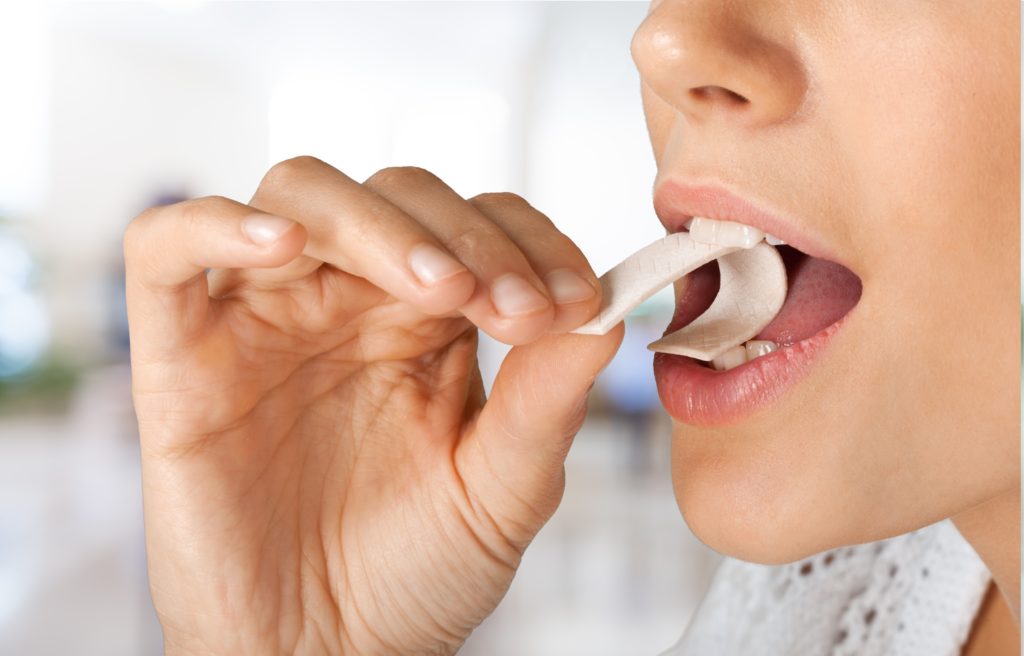Many people in Switzerland suffer from gastro-oesophageal reflux disease (GERD). Is it a good idea to chew gum to prevent these symptoms? Backflow from the stomach can damage your digestive system. oral health. Gastric acid has a very acidic pH, which can attack enamel when it reaches the mouth. Visit dentists in Lausanne, Fribourg and elsewhere in Switzerland This is called gastroesophageal reflux disease (GERD) dental erosion.
What exactly is gastroesophageal reflux disease?
This condition is defined as the reflux of stomach contents and stomach acid into the esophagus, pharynx or oral cavity. Reflux thus leads to inflammation of the digestive tract. The result is burning, irritation, regurgitation and an acid taste. Untreated gastro-oesophageal reflux can lead to esophageal damage and tooth erosion over time. We recommend that you consult a doctor if symptoms are recurrent and/or disrupt your daily life.
The benefits of chewing gum
When you chew gum, you stimulate the production of saliva in your mouth. As a result, you swallow more often, naturally combating stomach upsets. Chewing gum also makes the pH of saliva alkaline. This neutralizes the acidity of acid reflux and protects your tooth enamel.
According to a study published in 2005 in Journal of Dental ResearchIn fact, chewing sugar-free chewing gum for half an hour after a meal can reduce postprandial gastro-oesophageal reflux. Numerous other studies have confirmed these results.
In addition, gum chewing has been shown to improve mental capacity, including memory, concentration and reaction time. What's more, it improves blood flow to the brain, increasing oxygen levels in the head.
How to avoid gastroesophageal reflux disease?
Gastro-oesophageal reflux disease can disrupt your daily life, especially your sleep. You can follow these tips to limit symptoms.
- Chew sugar-free chewing gum, preferably with the SYMPADENT label.
- Choose bicarbonate chewing gum.
- Avoid mint chewing gum.
- Limit consumption of foods that promote acid reflux.
- Eat your last meal at least 3 h before bedtime.
- Sleep with your head elevated with a suitable pillow.
- Stop smoking, as tobacco consumption is an aggravating factor.
If acid reflux persists, ask your doctor for advice. He or she can prescribe a treatment for gastro-oesophageal reflux disease.
Are all chewing gums the same?
Of course, to benefit from the positive effects of chewing gum, you shouldn't choose just any chewing gum. All dental hygienists in Fribourg and Lausanne will tell you to chew sugar-free chewing gum.
Visit Swiss Society of Dentists SSO recommends giving preference to chewing gums bearing the Sympadent label, personified by the Quenotte man logo. Sympadent is a Swiss non-profit organization which scientifically tests products to ensure they are gentle on teeth. These chewing gums are artificially sweetened. They therefore contain no sugar and do not cause acid attack on the teeth. Chewing gum never replaces brushing your teeth. It only helps to stimulate salivation and prevent gastric reflux.
You can also choose bicarbonate chewing gum. This ingredient also helps neutralize the acid that rises from the stomach. There is still some debate about chewing gums containing peppermint. Some argue that it is beneficial in the fight against gastro-oesophageal reflux. Others believe it worsens symptoms, as it relaxes the esophageal sphincter and encourages reflux.
In all cases, it's best to consult your dentist or dental hygienist for personalized, professional advice. HELVIDENT welcomes you to one of its 3 dental centers in Fribourg, Lausanne and Aigle.

